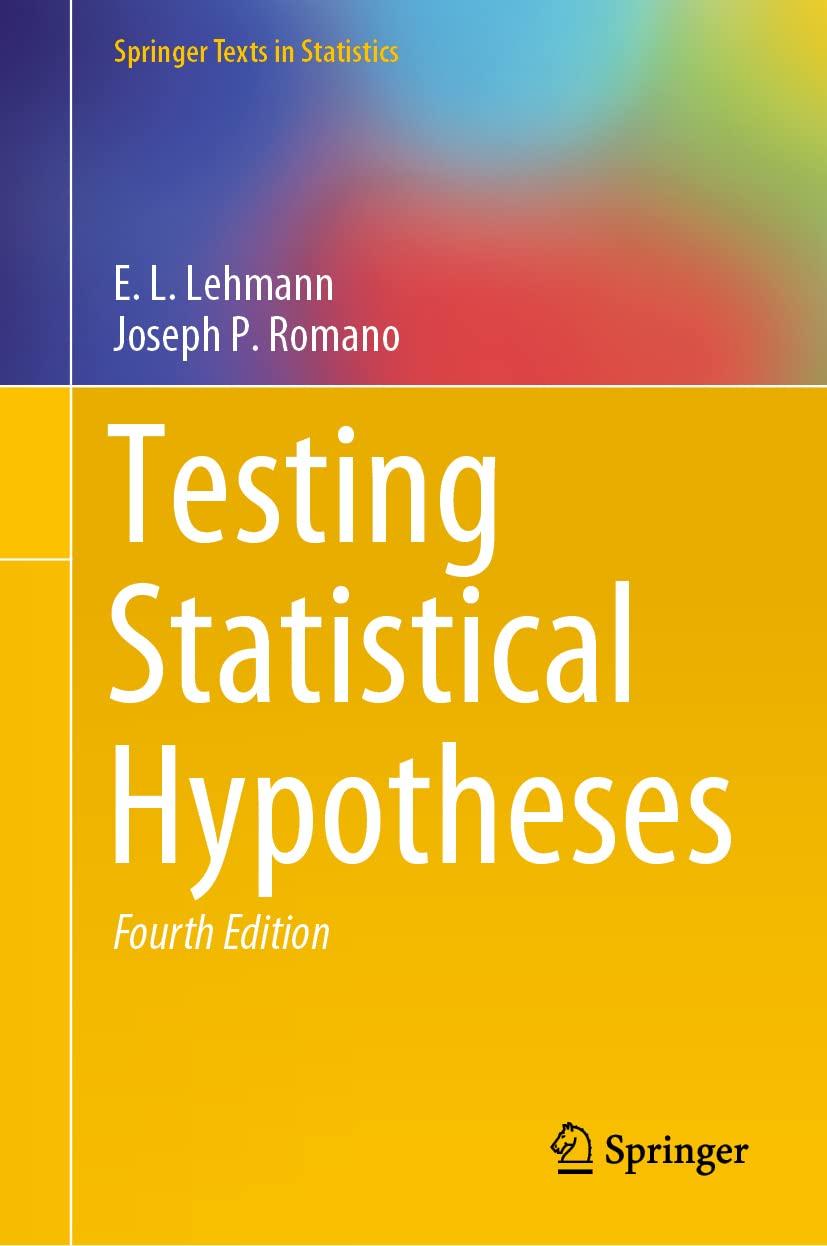Runs. Consider a sequence of N dependent trials, and let Xi be 1 or 0 as the
Question:
Runs. Consider a sequence of N dependent trials, and let Xi be 1 or 0 as the ith trial is a success or failure. Suppose that the sequence has the Markov property15 P{Xi = 1|xi,..., xi−1} = P{Xi = 1|xi−1}
and the property of stationarity according to which P{Xi = 1} and P{Xi = 1|xi−1}
are independent of i. The distribution of the X’s is then specified by the probabilities p1 = P{Xi = 1|xi−1 = 1} and p0 = P{Xi = 1|xi−1 = 0}
and by the initial probabilities
π1 = P{X1 = 1} and π0 = 1 − π1 = P{X1 = 0}.
(i) Stationarity implies that
π1 = p0 p0 + q1
, π0 = q1 p0 + q1
.
(ii) A set of successive outcomes xi, xi+1,..., xi+ j is said to form a run of zeros if xi = xi+1 =···= xi+ j = 0, and xi−1 = 1 ori = 1, and xi+ j+1 = 1 ori + j =
N. A run of ones is defined analogously. The probability of any particular sequence of outcomes (x1,..., xN ) is p0 + q1 pv 0 pn−v 1 qu 1 qm−u 0 , where m and n denote the numbers of zeros and ones, and u and v the numbers of runs of zeros and ones in the sequence.
Step by Step Answer:

Testing Statistical Hypotheses Volume I
ISBN: 9783030705770
4th Edition
Authors: E.L. Lehmann, Joseph P. Romano






